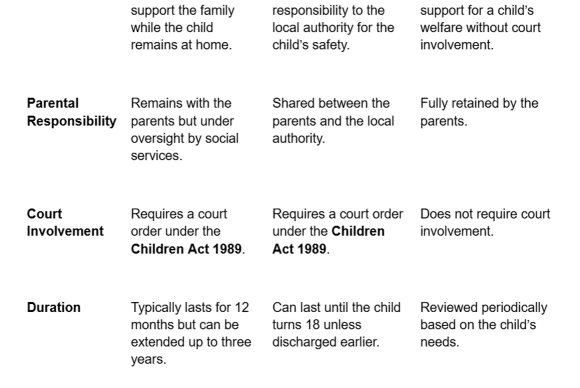At MMA Law, we understand that supervision orders can be complex and emotionally challenging for families. With years of experience in family law and child welfare cases, our team is here to provide clear, compassionate, and expert guidance. Below, we’ve answered some of the most common questions about supervision orders to help you better understand your rights and responsibilities.
What happens if a supervision order is breached?
If a supervision order is breached, the local authority may take further legal action, such as returning to court to request stricter measures. This could include applying for a care order or revising the terms of the supervision order to ensure the child’s safety. Breaches are taken seriously as they can put the child at further risk.
What is a compulsory supervision order?
A compulsory supervision order, specific to Scotland, is issued under the Children’s Hearings (Scotland) Act 2011. It provides a framework to protect children at risk and often includes conditions like supervised contact, specific living arrangements, or educational requirements. These orders are reviewed regularly to ensure they meet the child’s needs.
What is an education supervision order?
An education supervision order is issued when a child is not receiving an adequate education, often due to truancy or a failure to provide suitable home education. The local authority works with the parents and school to ensure attendance and academic progress. Compliance is essential, as non-adherence could result in further legal action.
How long does a supervision order last?
A supervision order typically lasts for 12 months but can be extended by the court for up to three years if necessary. Extensions require evidence showing that ongoing supervision is essential for the child’s welfare.
What happens when a supervision order ends?
When a supervision order ends, the local authority’s oversight ceases. The family can continue without formal intervention unless there are unresolved concerns. If necessary, the court may issue another order or recommend additional support services.
Does a supervision order give parental responsibility?
No, a supervision order does not transfer parental responsibility to the local authority. Parents retain full legal rights and responsibilities for their child but must comply with the order’s conditions.
How to appeal a supervision order?
To appeal a supervision order, you must file an application with the court, explaining why the order is no longer necessary or appropriate. Supporting evidence, such as improved living conditions or resolved concerns, is critical to strengthening your appeal.
Why is supervised contact ordered?
Supervised contact is ordered when the court believes a child’s safety or wellbeing might be at risk during unsupervised visits. It ensures that visits occur in a controlled environment, allowing the child to maintain a relationship with the parent or carer while safeguarding their welfare.
Why Choose MMA Law for Supervision Order Support?
At MMA Law, we specialise in helping families navigate the complexities of supervision orders and other family law matters. With extensive experience in child welfare cases, our team of expert solicitors is committed to providing tailored advice and compassionate support.
We take a client-focused approach, listening carefully to your concerns and working tirelessly to secure the best possible outcome for you and your family. Our proven track record in achieving favourable resolutions has made us a trusted choice for families across the UK. Whether you’re seeking guidance on a supervision order, contesting court decisions, or exploring legal options to protect your child’s welfare, we are here to help.
Taking the first step is simple. Contact our experienced team to discuss your case in a confidential consultation. We’ll take the time to understand your circumstances and explain how we can support you.




